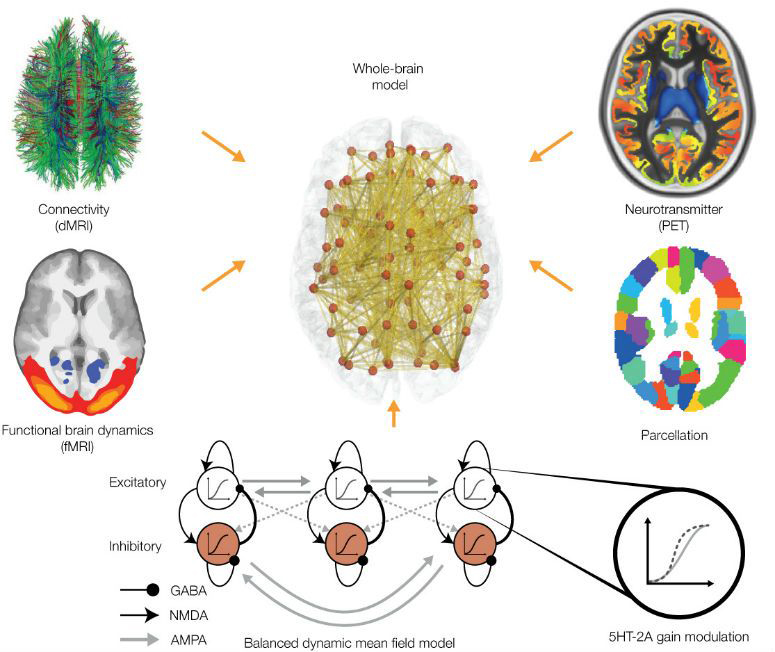New work by the research teams led by Gustavo Deco, ICREA research professor and director of the Center for Brain and Cognition, UPF, and Morten Kringelbach, University of Oxford and Aarhus, published on 27 September 2018 in the journal Current Biology may mean a breakthrough for the treatment of neuropsychiatric diseases.
A new method to model neuroimaging data could help to predict potential treatment outcomes for patients with mental health disorders. The study by researchers from ICREA/Pompeu Fabra University, and the University of Oxford looked specifically at people with mental disorders attributable to diseases of the nervous system such as depression and addiction. The team used neuroimaging data of healthy participants who had been given LSD (lysergic acid diethylamide) and placebo treatments to prove the concept of the new computer model.
They used an advanced computer model of human neuroimaging data that precisely modelled wholebrain dynamics using the actual brain connectivity between regions. For the first time, this whole-brain model of neural activity was integrated with the concentrations of the chemical messenger – a serotoninergic neurotransmitter- called 5HT2A, in each brain region. Integrating this information in the model allowed the team to investigate the causal non-linear interactions between neural activity and neurotransmitter concentration. As the concentration of neurotransmitter changes in one or more regions so thus the brain dynamics, but crucially in a non-linear way that requires a model to predict.
References
